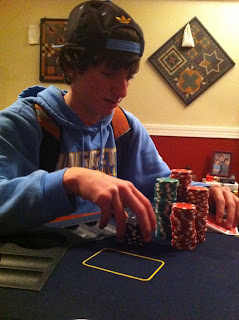Living with Bipolar can be a daily struggle. You don't know when you wake up if you will be happy, sad, manic or depressed.
For so long I was dealing with a Roller coaster depression. I would "crash" into depression, then up into doing fine for a while, then "crash" again — sometimes for a reason, but often for no clear reason at all. Depression really sucks!
Not only did I have depression, but I also had rage. The doctors delicately called it "irritable episodes". I'd go through phases in which even I can recognize that my anger is completely out of proportion to the circumstance that started it. I "blow up" over something trivial. I typically experience this as part of "PMS". That time of the month is bad enough, but to have bipolar exasperate your mood swings… oh baby look out!!!
At first I respond fairly well to antidepressant medication, but after a while the medications seem to "stop working". The benefits usually last several weeks, often months, and occasionally even years before this occurs. I always felt "better" but not quite "right". I've tried many different antidepressants for about 15 years.
Here's a check list of items I found regarding bipolar disorder. My answers are in red.
- The patient has had repeated episodes of major depression. YES!
- The first episode of major depression occurred before age 25. It was around 26 when my depression began, after the birth of my second son.
- A first-degree relative (mother/father, brother/sister, daughter/son) has a diagnosis of bipolar disorder. I've seen symptoms in family members, but no one has "officially" been diagnosed except myself.
- When not depressed, mood and energy are a bit higher than average, all the time ("hyperthymic personality"). I had mania episodes as a teen / young adult. But continued to have other "hyperthymic" symptoms: such as impulsive behavior, spending sprees, inappropriate behavior, etc. Friends would refer to me as "the life of the party".
- When depressed, symptoms are "atypical": extremely low energy and activity; excessive sleep (e.g. more than 10 hours a day); mood is highly reactive to the actions and reactions of others; and (the weakest such sign) appetite is more likely to be increased than decreased. Some experts think that carbohydrate craving and night eating are variants of this appetite effect. Right on the money!
- Episodes of major depression are brief, e.g. less than 3 months. With antidepressants, yes.
- The patient has had psychosis (loss of contact with reality) during an episode of depression. Thank God I haven't dealt with this!
- The patient has had severe depression after giving birth to a child ("postpartum depression"). Yes.
- The patient has had hypomania or mania while taking an antidepressant. I was the opposite; severe irritability to uncontrolable rage without antidepressants.
- The patient has had loss of response to an antidepressant (sometimes called "Prozac Poop-out"): it worked well for a while then the depression symptoms came back, usually within a few months. oh yeah!!!!
- Three or more antidepressants have been tried, and none worked. 5 that I can at least remember.
For more than 15 years, mania and depression were tearing me and my family apart. My husband would tell me to "shake it off" or "just get up and do something". It isn't that simple. Your mind feels cloudy, your body feels heavy, your will is non-exsistent. It is hard to describe to someone who has not personally dealt with it.
I finally found a doctor who put me on the right medication. Lamotrigine seems to have changed my moods. I notice a MAJOR difference. Those around me notice as well. My family is no longer "walking on eggshells". I have had no side affects. This medication has saved my life.
I wanted to write this post not to have you feel sorry for me, but for Bipolar awareness. If you have a loved one who has Bipolar:
- Learn as much as you can about Bipolar.
- Listen to what your loved on has to say.
- Just because someone has bipolar doesn't mean his/her point of view isn't valid.
- Ask how you can help.
- Everyday things can be overwhelming to people with bipolar.
- Encourage treatment.
- It's key that your loved one stay on his/her medication and gets regular checkups.
- Do thing together.
- People who are depressed often pull away from the world.
- Take a walk, go out to dinner.
- If he or she resists, don't force the issue. Instead, just ask gently a few days later.
- Express your own concerns.
- Your loved one's behavior can have a huge effect on you. You have the right to talk about it.
- Do not blame the other person. Don't list all of his/her mistakes.
- Focus on how the behaviors make you feels.
- Accept your limits.
- You cannot single-handedly make your loved on better.
- You do not have to bear the burden on your own.
- Take care of yourself. If you push yourself too far, you will burn out.
- Caregiver website.
If you made it this far, many thanks!


















































